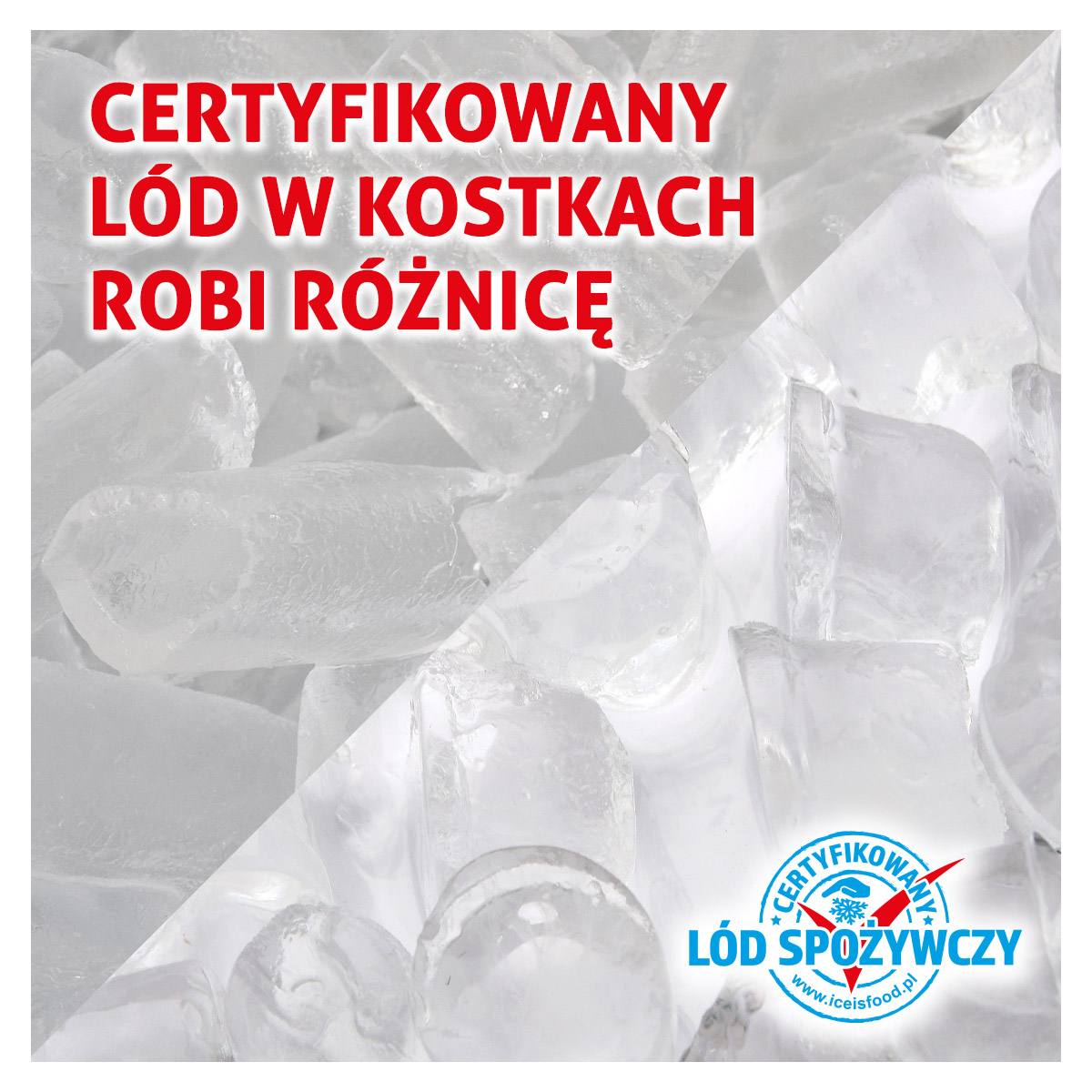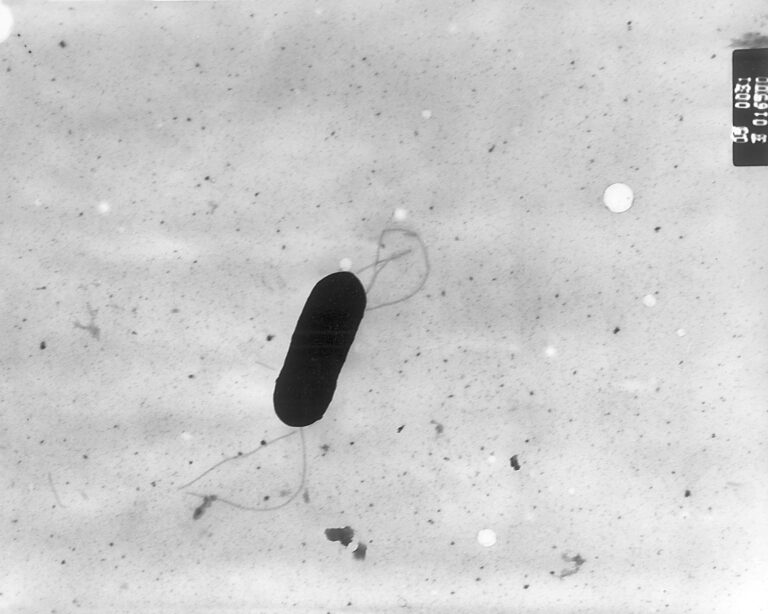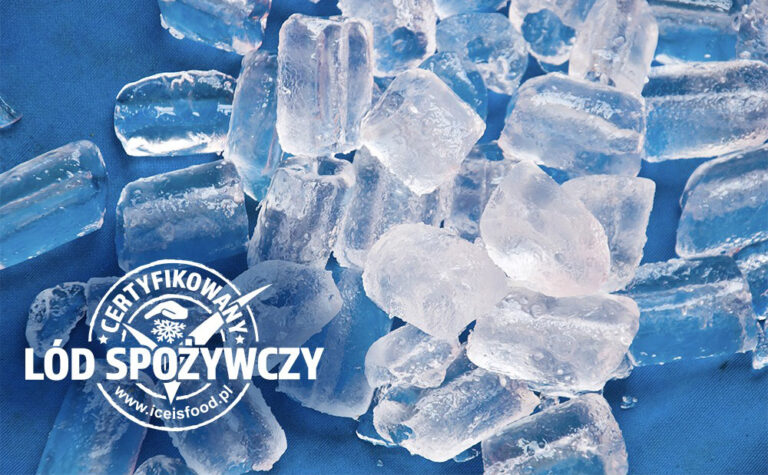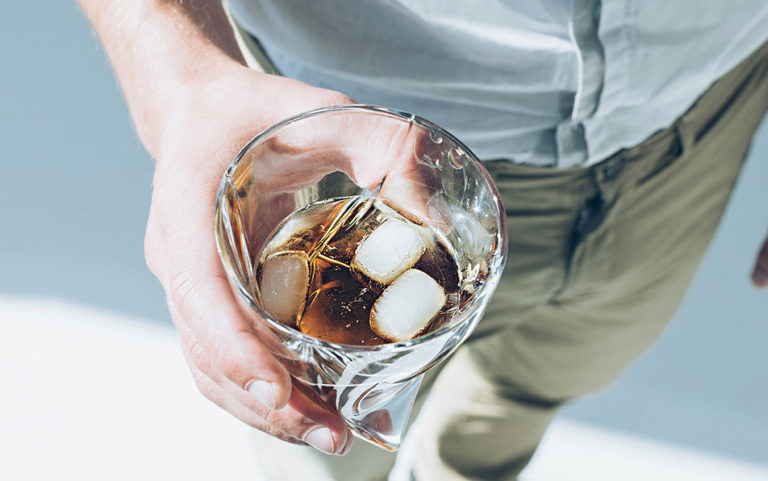
Certified cubed ice makes a difference
What are the main differences between industrially produced and home-made ice, explains Piotr Lewiński, food technologist.
Retail ice cubes
We are in the third decade of the 21st century now, but just a few years ago none of us would have thought that ice cubes would be an indispensable product for cooling drinks on hot days and that they would be available in every grocery shop or petrol station.
It is safe to say that not everyone is yet aware that packed ice cubes are available in retail. And there are even more those who are not aware of the big difference between ice produced in bags, trays, and ice cube makers in their fridges and ice produced by a professional company, says Piotr Lewiński.
Key differences
The differences are really big and you should take a closer look at them. Firstly, the finished product is immediately available, unlike the home-made ice which requires time for preparation. Ready-to-use ice cubes we purchase in a shop are stored at -18 ˚C in line with the regulations imposed on traders of frozen products. Secondly, ice produced by a reliable manufacturer is crystal clear.
The third feature concerns the drink cooling time. This requires more consideration. Compared to home-made or non-professional ice, the difference is really big. If you use a few ice cubes produced by a specialised company, you can expect long-lasting cooling. If you use home-made ice, the ice will have melted by the time you sit down on the sofa, irreversibly losing its ability to further cool the drink and causing the drink to dilute, says Piotr Lewiński.
Taste of ice cubes
The fourth feature is the taste of the ice. It should be neutral. In the self-made ice, the water you used may give different types of aftertaste (brackish, bitter, sour, etc.) resulting from the predominance of minerals or other components. By contrast, as noted by Piotr Lewiński, ice produced by an experienced manufacturer remains completely neutral thanks to the proper preparation of the water in a multi-stage filtration process. As a result, it will not affect the flavours of even the high-grade drinks.
This brings us to the fifth, and probably most important, feature. In the context of the health safety of consumers, you should know that ice is considered a food, not a certain type of additive to beverages. Contrary to the stereotypes, the ice is not perfectly clear and not free of microorganisms. Like any food product, it can contain bacteria. Anything that is frozen in it is ingested by the consumer when they drink their beverage, emphasises Piotr Lewiński.
Never compromise on safety
The full health safety of the products can only be ensured by proper hygiene during production. All ice moulds, home ice makers, and catering or hotel ice machines require regular hygiene measures, including periodic disinfection. This sounds rather serious but should not be underestimated for health reasons.
Given the differences we talked about, you should consider choosing packed ice cubes produced by professional companies. Stowarzyszenia Producentów i Operatorów Certyfikowanego Lodu Spożywczego (website: iceisfood.pl) is an example of a very welcome non-profit initiative that promotes high standards in the production of packed ice cubes. We know from life that even seemingly minor differences matter, and they matter even more when health is at stake, says Piotr Lewiński.

Listeria monocytogenes
Listeria monocytogenes is a broad-spectrum bacterium that multiplies between -0.4 °C and 50 °C, is resistant to short-term pasteurisation and freezing as well as subliminal doses of preservatives and detergents, thrives under both aerobic and anaerobic conditions,

Control of food safety in Poland
It is well known, especially from reports of the Supreme Audit Office (NIK), which regularly examines various elements of the system, that the control of food safety in Poland leaves a lot to be desired. According to NIK, the main threats in the food chain are as follows: – food contamination (poor food quality),

The dirty truth about ice cubes
Ask yourself the question, how clean is the ice in your glass? If you are not careful, your drink has a lot of dangerous bacteria, no matter where the ice was made, whether in a pub, restaurant, ice factory, or your own home. You may think that micro-organisms do not survive in the icy conditions of freezers, but the truth is quite different and this is backed up by years of research by scientists around the world freezing bacteria and studying their survival rates.
Stowarzyszenie Producentów i Operatorów Certyfikowanego Lodu Spożywczego, (Association of producers and operators of certified food ice) KRS [National Court Register] No. 0000784552, REGON [National Official Business Register] No. 383424111, NIP [VAT] No. 7010927104 00-630 WARSZAWA, ul. POLNA 24/7

